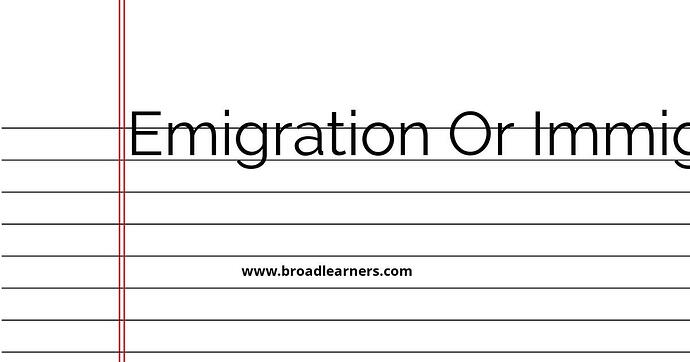'Emigration' and 'immigration' are commonly confused words in English grammar. Understanding the difference between 'emigration' and 'immigration' is important to use them correctly in written and spoken English.
'Emigration' refers to the act of leaving one's own country to permanently settle in another country. It is the process of moving away from one's homeland.
'Immigration', on the other hand, refers to the act of entering and settling in a country that is not one's own. It is the process of moving into a new country to make it one's permanent residence.
Let's take a closer look at the meanings and usage of 'emigration' and 'immigration'.
| 'Emigration' | 'Immigration' |
|---|---|
| The word 'emigration' is used to describe the act of leaving one's own country. | The word 'immigration' is used to describe the act of entering and settling in a new country. |
|
|
To remember the difference between 'emigration' and 'immigration', it can be helpful to think of 'emigration' as exiting or leaving one's own country, and 'immigration' as entering or coming into a new country.
Here are some examples of correct usage:
- She decided to emigrate from India and move to Australia for a better life.
- There has been a significant increase in immigration to the United States in recent years.
- Many people emigrate from rural areas to urban centers in search of employment opportunities.
- The government implemented new immigration policies to attract highly skilled workers.
Remembering the correct usage of 'emigration' and 'immigration' will improve your grammar and communication skills.
